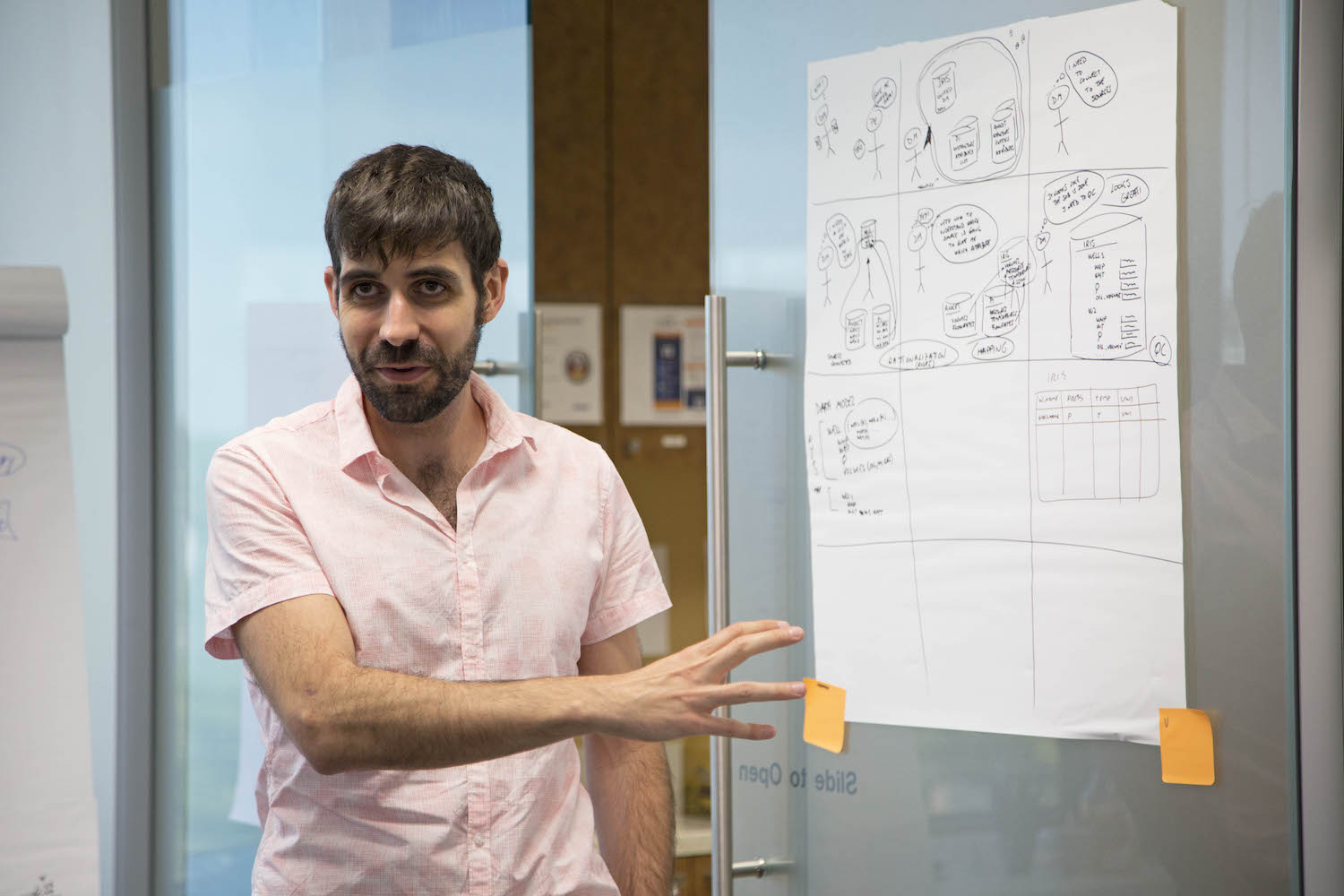We all have a personal brand. That is, we all are perceived to be in a particular way. In this article, I am sharing how I approached personal branding from a product management point of view. I managed myself as I do with products. I believe that the most valuable product is myself and others in my team. After all, we are the means through which better products are made. As a result, I created a roadmap of activities to revamp my personal brand.
Personal branding
Whether we like it or not, we all have a personal brand. Simply put, your personal brand is how other people perceive you. And you know that perception is reality. Now, the question is, do I want to let my personal brand free? do I leave it to chance? or do I want to manage how other people perceive me? I know, these are three questions, but it is really only one, you got it. The answer was easy for me. I'm not going to leave it to chance. I like to have an influence on outcomes.

I had recently finished my MBA program, and Brand Management was one of the last courses I took. So managing my personal brand shouldn't be so difficult. Easier said than done. I did some online research about brand management to complement what I learn in the course. I found some insightful literature out there (namely, "The Definitive Guide to Personal Branding," "How to Build a Personal Brand That Will Impress Even Oprah" , and "Personal Branding 101").
Since personal branding is not the topic of this post, I will try to summarize this part. I am thinking of writing about personal branding when I am a bit more confident about it, so stay tuned.
In summary, I needed to define my vision, goal, strategy, value proposition, and competition. Then, I needed to know where I stood and how to get where I wanted.
Defining the context
What context? This is basically defining
- who I am
- what I want
- how I want it
- how I am different from others who want the same
- who are those others
Who I am and where I am could be confused. I don't want to go off on a tangent, but are we made or born? Oh man, I love this topic. Bear with me though... The only thing I know (or believe) about this is that we are neither 100% born, nor 100% made. And the best thing: we can learn! However, the first obstacle to learning is yourself. That is the case if you have a fixed mindset (i.e., if you believe you are the way you are). If you have a growth mindset, the limit is the sky! (interested in growth mindset? check this HBR article)
Back to the topic, one of the best ways to know about yourself is to ask others. One of my MBA courses, Leadership Development, helped me a great deal to get to know me better. In the course, I asked others but I also reflected on myself. I articulated some of my core values (i.e.: integrity, loyalty, service...). You could also take personality tests (e.g.: big five personality test), but I believe less and less on them (it's that what you are, or what you are told to be? heard of self-fulfilling prophecy?).
Our vision is the higher meaning and purpose of our work. It is so important that you are willing to put time, suffer setbacks, and make sacrifices. What is my vision? What do I want? I want to add value to people's lives. To make that happen, I want to build things (i.e.: products, experiences...), and I don't want to do it alone.
How do I want to realize my vision? Ever heard life is a journey, not a destination? I want to add and gain value not just at the destination (i.e.: thing built), but also in the journey (i.e., the process of building).

To find what makes me different, my value proposition, I reflected in my past. What resonates with me. Your past is the best predictor of your future (I'm very quote-y today ). Undoubtedly, my exposure to different cultures and a wide range of interests has provided me an edge. Since I left home, I have lived in three different countries and visited many more. I have worked with people of many nationalities. I developed close relationships with multicultural people. Moreover, I do not fit the stereotype of a computer engineer. Rather than spending most of the time with computers, my interests include nature, playing sports, traveling, and photography among others. I combine technical and business background with an MBA. This breadth of knowledge and experience makes for a good product manager fit.
Competition among product managers is fierce. To begin with, tech companies often cultivate future PMs from within. Moreover, there aren't many product managers compare to other roles. The average ratio of product managers to software engineers at a technology company is one to 10. To make matters worse, the applicants could come from any kind of background, not just software. So standing out is extremely important when it comes to position yourself as a product manager.
Where I am and how to get where I want
As I mentioned, we are neither 100% born, nor 100% made. When you learn who you are, you learn how you were born and made. It'd be difficult to change your core values, but you most definitely can make changes in who you are. By changing that, you will change perception. Perception and reality are one and the same. The same way you do brand audits to understand how your brand is perceived, you audit yourself to understand where you are.
The stages of a brand audit are brand inventory, brand exploration, positioning, and tactical recommendations. In the brand inventory stage, you find out the current status of the brand. In this case, you can research online about you (e.g.: Google you). You discover what you are saying about you. The purpose of brand exploration is to get a picture of how others see you. My personal brand inventory and exploration revealed few potential improvements including building a stronger product people network, improving self-awareness, polishing my who I am message, experimenting more, and seeking respect instead of being liked. In the third stage, you position yourself by defining your value proposition. Lastly, you come up with an execution plan, which leads nicely to how you get where you want.
You can see the plan as a roadmap to achieve the goal of rebranding yourself. What goes in the roadmap though? If you are a product manager, you should see yourself as a product (check these articles: "Product Managers Are Also Products" and "Make yourself the product"). As a product, you need to understand who your customer is and what problem you are solving for them. Keep that always in mind. If your customer is a hiring manager, find what their pain points are and how you can help (how your value proposition fits). Then, you need to show your customers how you can add value. In other words, brand yourself. To improve my brand, I came up with a plan to work on my improvement areas. I planned to polish my profile in social networks and my job search material (i.e., resume, cover letters, and portfolio), network strategically with product managers and entrepreneurs, and build a personal web and a blog to share my ideas regularly.

Showtime!
Fast-forwarding the roadmap, I'd like to tell you about how I built my web MVP. I will do that in my next post, don't miss it! It will close the circle about this story of how I built jesusbouzada.com.
I'll be waiting for you!
Thanks for reading, and see you again in my next post (coming very soon!).
